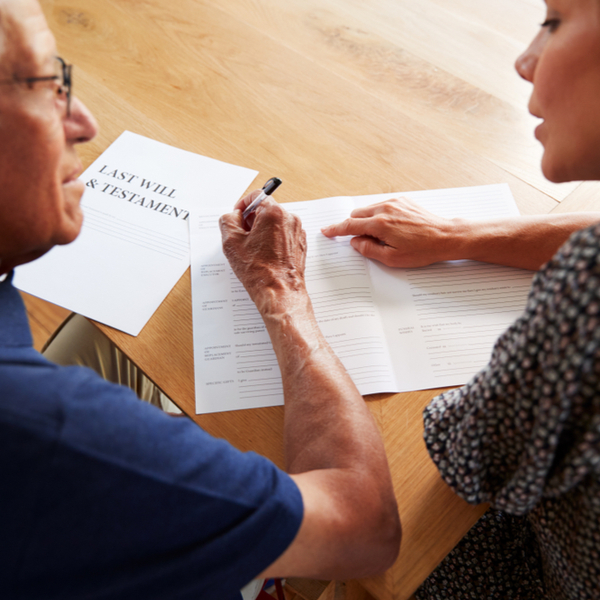Whenever I begin to draft a last will and testament, I pay special attention to the strict rules that must be followed so the Surrogate’s Court can recognize it. Failing to adhere to these formalities can prevent the will from being admitted to probate. As a result, it will be considered invalid by the court.
Anyone over age 18 can draft a will in New York. You must keep the formalities in mind to protect your wishes. Here’s what you need to know:
Will Requirements Under New York Law
In legal terms, a person who makes a will is called a testator. As a testator, you must meet several requirements for the will to be valid, including:
Testamentary intent
You must intend for the document to be your last will and testament. Such intent can be demonstrated when the testator publishes the following when the will is signed: “I, John Doe, do hereby declare this instrument to be my last will.” Typically, a well-drafted will contains the above statement.
It’s critical to mention your intent for the will to be valid. For example, a husband making a promise to draft a will in the future and leave all property to his wife is not enough to be considered a valid will.
Testator’s signature and place to be affixed
As the testator, you must sign the will, or it must be signed by someone under your direction and in your presence. If someone under your direction signs the will, they must also sign their name and include their residential address. The will must also be signed by “attesting witnesses” once it is executed. If someone signs in your place, that person cannot also serve as an attesting witness.
Other important notes about the signature: It must be placed at the end of the document. While an incorrectly placed signature will not necessarily invalidate the will, it will invalidate any provisions that precede your signature. However, a will could be invalid if the provisions above the signature are so incomplete that they wouldn’t easily make sense without looking at the provisions below the signature. A will could also be invalid if giving effect to only the provisions above the signature would fail to carry out your intent. But why even attempt to rely on such an exception? The best plan is to ensure the signature is always at the end!
Two Attesting Witnesses
This is a big one and should always be given careful attention because it can confuse many people.
Under New York law, you (as the testator) must sign or acknowledge your signature in the presence of two attesting witnesses. These witnesses shall, within 30 days, both attest your signature as affixed or acknowledged in their presence and, at your request, sign their names and put their addresses at the end of the will.
You may either sign in the presence of or acknowledge your signature to each attesting witness separately. Again, the 30-day rule applies.
Remember, this is what is minimally required. The best practice should be to have all parties in the same room, witnessing the signature of the will, and each sign where necessary at the same time.
Keep in mind that the attesting witnesses should not be beneficiaries of the will. This is because a witness who is also a beneficiary has a special interest in the will. Any gift left to the witness-beneficiary could be void unless there are more than the two required attesting witnesses. To avoid this problem, we always recommend witnesses who are not beneficiaries or have no rights to make a claim if a will is invalidated.
How Can I Ensure the NY Last Will and Testament Requirements Are Met?
I believe that the answer to that question is to work with an experienced trusts and estates attorney. A lawyer can assist in all aspects of drafting and executing the will.
A “will ceremony” should take place for the proper and formal execution of the document, so the chances of fulfilling the New York requirements are much higher with a lawyer on your side. In addition, in cases where an attorney drafted a will and supervised the signing ceremony, state law automatically assumes that the will is genuine. Having an attorney oversee the process can provide an additional level of security and comfort for you as you make these critical end-of-life decisions.
Here’s the bottom line: Don’t underestimate the importance of working with a skilled trusts and estates attorney to draft your last will and testament. A simple mistake could undermine all of your good intentions.

Chaves Perlowitz Luftig LLP is one of the most highly regarded real estate and estate planning firms in New York City. Our team of top-rated real estate attorneys and estate planning lawyers have extensive knowledge, resources, and connections to help you achieve your goals and plan for the future.

